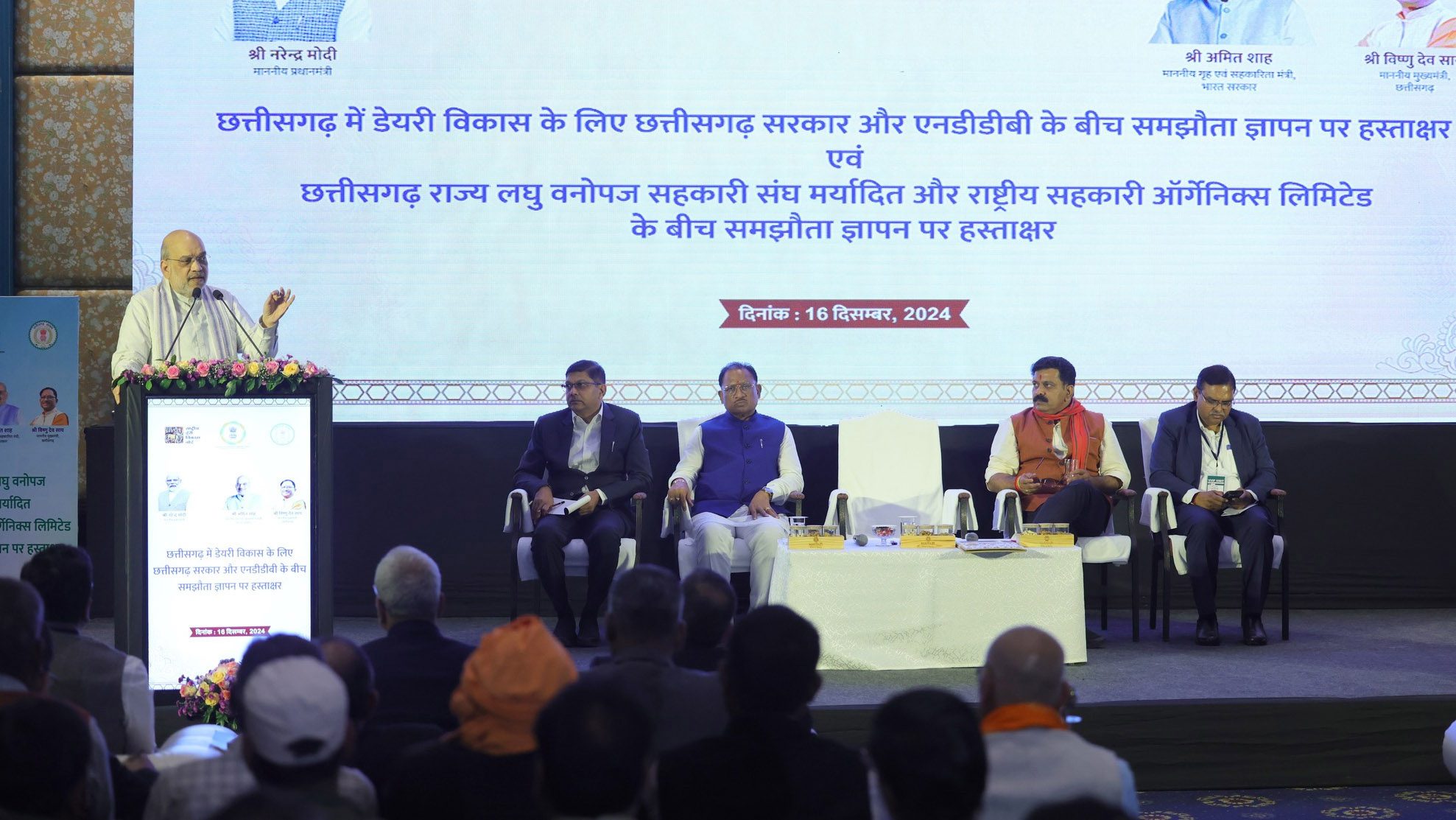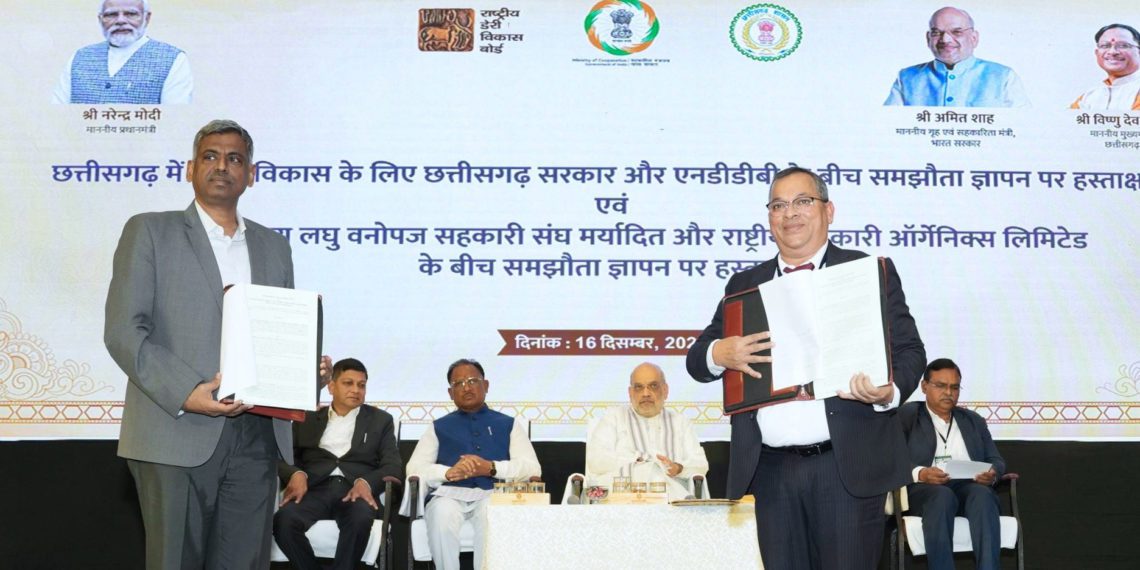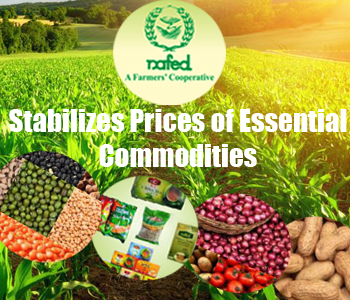In the presence of Union Home Minister and Minister of Cooperation Amit Shah, two transformative agreements were signed on Monday to advance the minor forest produce and dairy sectors in Chhattisgarh. These agreements signify a milestone in strengthening the cooperative sector, empowering communities, and promoting sustainable economic development.
Addressing the event, Shah underscored the pivotal role of cooperatives in driving prosperity and highlighted two landmark initiatives. He raised concerns about the rise of diseases linked to toxic food and emphasized a shift toward preventive measures by promoting organic and disease-resistant food.
Shah credited Prime Minister Shri Narendra Modi’s leadership in prioritizing organic farming and cited Gujarat as a model state, where farmers have significantly boosted their income by adopting organic practices. Using indigenous cows, farmers in Gujarat have been able to cultivate 21 acres of land with organic fertilizers, achieving 1.25 times higher yields compared to chemical-based methods.
Shah acknowledged the challenges posed by the lack of certification in the organic products market, which erodes consumer trust and limits fair pricing for farmers. To address this, he highlighted the establishment of the National Cooperative Organic Limited (NCOL), a central institution supporting organic certification.
He emphasized that trusted cooperative brands like ‘Bharat’ and ‘Amul’ are leading the supply of certified organic products. With robust soil testing and certification mechanisms in place, he expressed confidence that within four years, certified organic grains will be accessible across India, restoring consumer confidence and improving farmer incomes.
A key agreement signed during the event was between the Chhattisgarh State Minor Forest Produce (Trading and Development) Cooperative Federation Limited (CGMFPFED) and NCOL. This collaboration aims to certify forest produce such as wild honey, tamarind, mahua, and coarse grains under the brand ‘Bharat Organics,’ enhancing their national and international market reach.


The second agreement, signed between the Chhattisgarh Government, the Chhattisgarh State Cooperative Dairy Federation, and the National Dairy Development Board (NDDB), focuses on transforming the dairy sector in Chhattisgarh. Shah highlighted the need to expand dairy cooperatives to every village, particularly in regions freed from Naxalism.
He stressed that involving women in these cooperatives will empower marginalized communities and create a model for inclusive growth. The agreement targets increasing milk collection capacity from 79,000 kg to 5 lakh kg per day and processing capacity from 1 lakh to 4 lakh litres daily. NDDB will provide managerial support at no cost, with funding sourced from Central Government schemes, NABARD loans, and state contributions.
Shah expressed optimism that these agreements will usher in prosperity, peace, and security, making cooperation the cornerstone of development in Chhattisgarh. He reaffirmed the Union Ministry of Cooperation’s commitment to supporting the state in building a robust cooperative framework to benefit rural and tribal communities.


















































